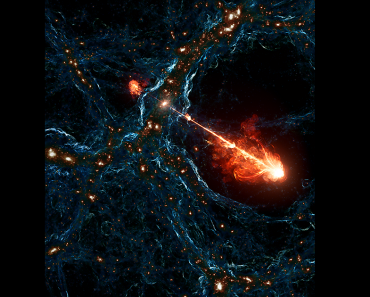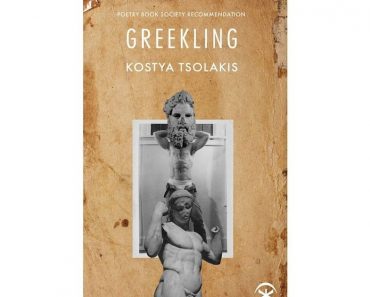As the liturgical year comes to an end, the Church’s readings become decidedly eschatological, focusing on the Four Last Things: Death, Judgment, Heaven, and Hell. A recent Sunday reading from Daniel tells us, “Many of those who sleep in the dust of the earth shall awake; some shall live forever, others shall be an everlasting horror and disgrace.” (12:2)
Why does God judge on the basis of good and evil?
In a world overdosed on the dictatorship of relativism and allergic to objective moral standards, perhaps some think even God needs to explain, “Who am I to judge?” Presuming, however, that we recognize a fundamental distinction between God and man, why does God judge by criteria of good and evil?
Is it arbitrary, a capricious choice that God could have made in some way? Is it a “power thing” that God imposed, impinging on our “autonomy?” At the very least, couldn’t God have made “loving” a more explicit criterion, e.g., like the Beatitudes discussed in the General Judgment?
No.
It does all come back to Love. “Love,” first of all, is not some thing. It is Someone: “God Is Love.” (I John 4:8) And because Love is inherently a social virtue, it already points to the Trinity-in-Unity: three Persons, One God.
Love is not, therefore, primarily a feeling or an emotion. It is not a reaction. It is a reality shared by persons in relationship. The relationship of the Triune Persons is shared Good: Each loves in the other what is perfect in Himself – Life, Fidelity, Truth. The relationship of the Trinity is their Shared Goodness.
Man, made in God’s image and likeness, is made to share relationship: Genesis 1 makes that clear when it says, “male and female He created them,” while Genesis 2 affirms that “it is not good for man to be alone.” They are called to share relationships on the model of their image and likeness, i.e., shared goodness. St. Thomas Aquinas and Karol Wojtyła (in Love and Responsibility) speak of this as the true essence of love: amor benevolentiae, the wanting for another of the true good.
Wojtyła is clear that, in the man-woman relationship, other realities can color the picture, e.g., attraction on the basis of pure sexual appeal and emotional compatibility. He does not deny these elements can or do enter into that relationship. What he does deny is confusing them with what is essential to love, i.e., a shared common good (and not just a shared feeling or compatibility), a wanting of the objective good for the beloved.
When God invites human beings into relationship with Him, what can they share? God is infinite; man is not. God is perfect; man is not. God is all wise; man is not. What we can share is goodness, albeit within our created, limited capacity. But that is still real goodness.
That goodness is not a feeling, not a wish. It is real: the life of God in us was once clearly spoken of as “sanctifying grace.” It is the shared Life of God that cannot be shared when one is attached to what is anti-God and anti-divine-life, i.e., mortal sin.

Salvation is not about a proposition. It is also a proposal for a relationship, in and with Love, based on the shared objective good of grace. God, as a true lover, proposes. But the beloved always remains free to turn down the proposal. Life, leading to the ultimate choice of Heaven or Hell, is the story of that love proposal.
So, God could not have made the criterion for our judgment anything else but good or evil because, otherwise, there is no point in the shared Good between us and Him.
Genesis already registered this when God speaks of sin as leading to death, not because God has established some arbitrary connection between the two, but because, in turning from God as the Source of Our Life and Being, the only reality left is death and non-being.
Judaism and Christianity both made an enormous contribution to the history of religion in connecting God’s relationship with man to moral responsibility. Consider the account of Moses and the Flood. Many cultures, particularly in the Middle East, have primeval flood stories.
What is unique about Noah’s story is God’s motive in unleashing the flood: human evil had grown great. God saves Noah and his family because they are “righteous,” and God does not treat good and evil alike.
Compare that to the Epic of Gilgamesh, where the flood is unleashed by a sadistic deity who himself is almost destroyed because he forgets where the shutoff valve is. Compare that to Greek mythology, where the Olympian (and Roman) deities are not better than men, only bigger. Zeus would be quite comfortable in modern Washington or Hollywood. The pagan gods exact obedience through power, not love.
On the flip side, realizing the connection of good to our relationship with the God who created us and desires the good of shared eternal relationship, we also understand that God is not a threat to human autonomy. As Wojtyła often noted, Christian morality is not “alienating.” God’s Designs and human fulfillment stand in direct, not inverse ratio. We become our best selves by realizing the shared good that unites us to God.
This, of course, also exposes the lie behind the slogan “love is love.” Love will always be – and must be – measured by a shared, objective, mutual, common good. That common good is more than a feeling, sentiment, or want. In the case of sex, it involves the objective good of life: of a third person proceeding from the love of two, so that the domestic trinity can mirror the Eternal One.
One sometimes hears people lamenting, “the things I could do if I wasn’t Catholic or Christian.” That gets it all wrong. In evading the good, all you could do is be less human.







